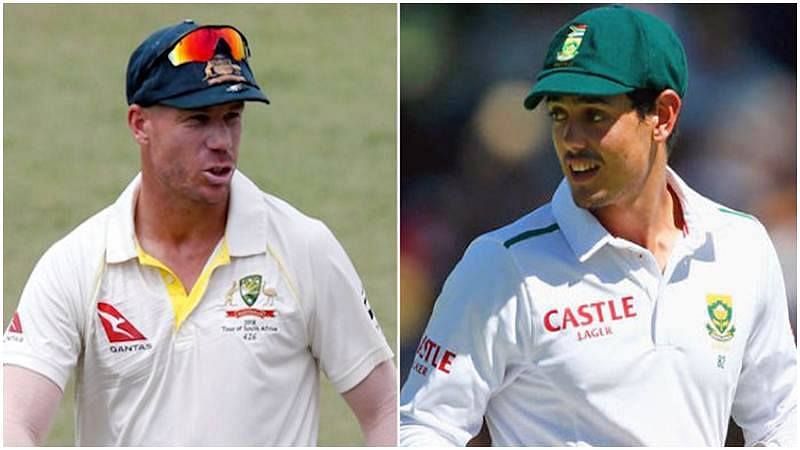
From profanity to purity, from preposterous to prejudiced: The week busted open
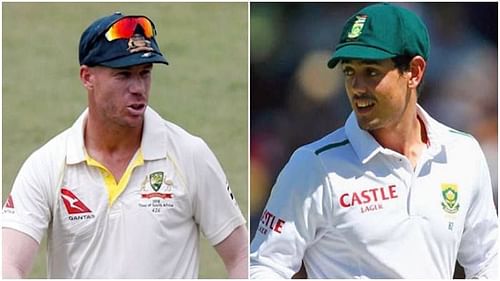
There’s something about March that just tingles the senses like no other. Summer is fast approaching, a hazy reminder that it’s probably best to stay indoors, turn up the fan to full blast and watch cricket. And there’s been plenty.
The battle of the bastards
If anyone was expecting the South Africa-Australia series to be a demonstration of gentlemanliness, a depiction of our snooty game in all its glory, they would be dead wrong. The stump mics were turned way up, and neither team held back.
The tension mounted until Tea on the fourth day, at which point CCTV footage emerged of a near-fight in Kingsmead hallways. Quinton de Kock allegedly went up to David Warner and referenced Warner’s wife’s much-publicised tryst with Kiwi Rugby player Sonny Bill Williams.
Steve Smith and Tim Paine held the clearly provoked vice-captain back. Then Faf du Plessis, in typical Faf style, hears the noise outside and turns up in nothing but his towel. The ICC came down hard on the players: Warner was handed two demerit points while Quinton de Kock was given one.
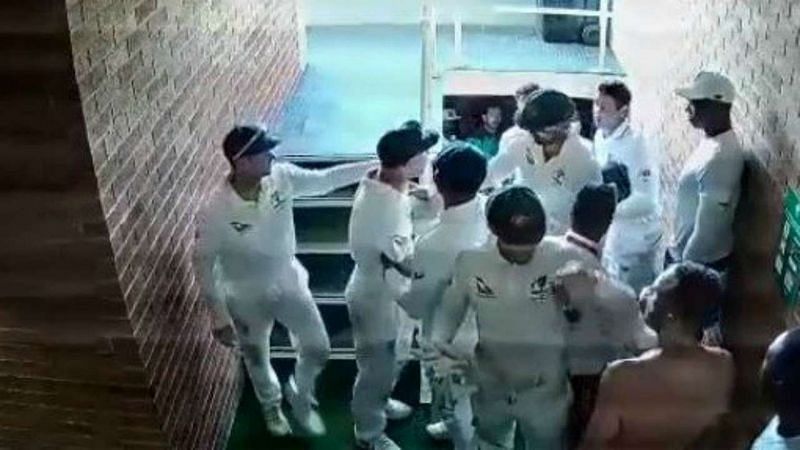
As far as I’m concerned, there’s nothing better for the game of cricket than adults going at each other on and off the field. Sports websites in Australia and South Africa, which were oblivious to the fact that there was a hotly contested Test on, were forced to take note, and the matter engaged fans almost a week later in Port Elizabeth.
The world of T20 leagues has made players far too nice to each other. The matter, was of course, followed by the usual he-said-she-said farce. But the fact of the matter is that a sport’s success is directly related to its media coverage, and if Test cricket is to thrive, it needs to be an exciting product for its viewers.
And there are few things more interesting than an aggressive teams screaming, sledging, and bouncing each other. Tune in next week for all the news of the Port Elizabeth Test.
First round of Nidahas Trophy completed, and it's surprisingly well-contested
The first round of the India-Sri Lanka-Bangladesh T20 tri-series was completed, with the teams split on just net run rate and the question that Indian fans everywhere are asking is: “Sri Lanka AGAIN? Seriously?"
It’s clear that this is an elaborate plan by the BCCI and Sri Lanka Cricket to disprove Einstein’s definition of insanity: India, with its main stars on vacation, lost to their southern neighbour in the first game of the series.
India brushed away Bangladesh in the series’ second game, after which Bangladesh proceeded to beat Sri Lanka in the third game of the series. The fact that these two sides are playing again, less than a month from the ending of Sri Lanka’s long, all-format tour of Bangladesh is a little suspect.
It’s well-known that nobody in their right mind will turn down a series against the cash-cow of international cricket, India, but whether or not India is incentivising its two closest allies in the boardroom with lucrative T20 series is still to be determined.
Mohammad Shami in hot water as new contracts have a white-ball focus
Mohammad Shami’s India contract was put on hold as he was charged with attempt to murder, rape, assault and criminal intimidation, according to a Times of India report. While it would be amiss to comment on the case before the judicial process takes its course, it’s just unfortunate that decorated Indian players, who are supposedly some of the biggest celebrities in India, are in the news for the wrong reasons.
The BCCI contracts were released with huge pay hikes for all of India’s professional cricketers. With the introduction of a new, ₹7 crore/annum A+ category, the top brass of players are now paid on par with their Australian and English counterparts.
There were, however, some strange decisions in the list of contracts: there’s a clear limited overs focus in the list of contracts, with predominantly white-ball players like Rohit Sharma, Jasprit Bumrah and Shikhar Dhawan getting more than their red-ball counterparts in Murali Vijay, Cheteshwar Pujara, and Wriddhiman Saha.
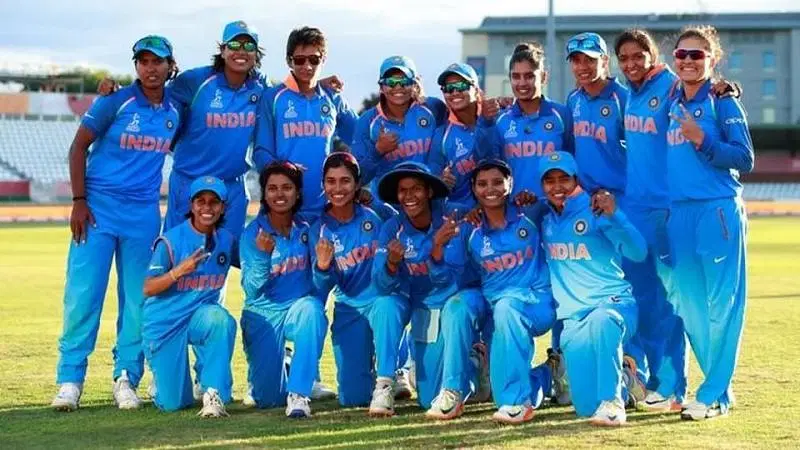
However, this is one of the rare opportunities to laud the BCCI, whose move to exponentially increase women contracts, domestic contracts, and youth contracts is a welcome development.
Yet, considering Virat Kohli, cricket’s hottest property, earns ₹10 crore more for eight weeks of work in the IPL than he does in a year’s work for India is a reminder that international cricket is still very much playing catch-up in the contract arms-race.
World Cup qualifiers entertain; Afghanistan falter
The World Cup Qualifiers are on in Zimbabwe, and the standard of cricket has been exemplary. With half the group stage complete, Group A’s usual suspects, West Indies and Ireland look good to go through to the super six, but Group B has thrown up major upsets through Afghanistan’s shock losses to UAE, Zimbabwe and Scotland. Yet, the major talking points of the tournament have been related to the broadcast of matches.
In a tournament with Ireland, the Windies, Afghanistan and Nepal, all budding cricket audiences, it is a little surprising that the ICC has failed to broadcast most, if not all of the games.
It can be noted that Australia’s “Cricket Network” has managed to broadcast games, with cameras at two ends and decent commentary, for just $12,500 per game. This could easily be replicated at the qualifiers.
Every time I watch a World Cup Qualifier game, all of which have been extremely competitive, it’s difficult to not think about the upcoming World Cup, one where cricket is actually reducing the number of teams in its showpiece event.
It’s been said, time and time again, that if cricket’s ten traditional full members (excluding Ireland and Afghanistan) continue this media rights circle-jerk, where the only thing that matters is short-term revenue, cricket will fail to take a foothold in emerging markets.
Afghanistan’s miracle journey to the top of world cricket is difficult to replicate, and if the ICC can’t even guarantee a spot in the World Cup for the team that regularly beats full members, and has the world’s best ODI and T20I bowler, then it’s really a wonder why the pundits are crying that the end of cricket is nigh.
Ross Taylor is a gilded God, and English ODI cricket continues its rapid rise
Ross Taylor scored an unbeaten 181 in the 4th ODI to single-handedly level the series 2-2. After injuring both his legs, pulling a muscle or two, getting arm cramps, the 34-year-old carried on to take his team to a five-wicket win chasing 334.
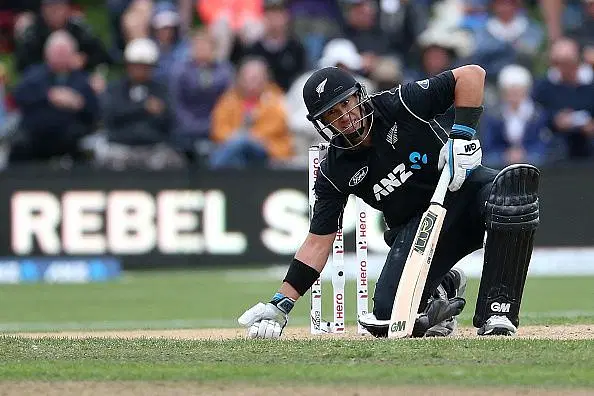
Taylor, no one's favourite batsman, courtesy of his squarish technique and scrap with our Lord and Saviour Baz, wrote himself into the history books in delicious fashion, with hoicks to leg and lifts over the infield, taking apart one English bowler at a time.
He was ruled out of the series decider, however, and the English romped to victory in style. Dismissing the hosts for a paltry 223, England’s Alex Hales and Jonny Bairstow took the attack to the Kiwi bowling, totally ruining the decider of a really entertaining series.
There were high scoring thrillers, low scoring squeakers and some fine displays of batting on varied pitches. It will probably not be an ODI series that is remembered for years to come, but it was an interesting one for England’s development as a white-ball juggernaut.
Without their best bowler, Liam Plunkett, they still managed to finish out games. Tom Curran and Chris Woakes showed their mettle, and Jonny Bairstow proved himself at the top of the order. I just wonder how England is going to manage to screw up the 2019 World Cup campaign from here?
Other headlines:
- BCCI and court-appointed Committee of Administrators continue their ongoing fight, cricket the only loser
- Ed Cowan announces his first-class retirement, the death of a gentleman’s career
- The PSL rumbles on; as golden oldies make hay
- The India-Australia-England women’s tri-series is about to start, a great chance to grow the women’s game in India.
- The IPL is still a month away, so can everyone shut up about it already?
And finally, everyone’s favourite time of the week, the biggest winners and losers of the week.
Biggest winner:
Ross Taylor’s dating life: There is absolutely no doubt, that after his frankly pleasureful performance in Dunedin, our boy Ross is going to have absolutely no trouble with the ladies in Kiwi sports bars.
Biggest loser:
David Warner’s political career: After comments on The Final Word podcast, it seemed to one and all that David Warner was looking for work in the public sector post retirement.
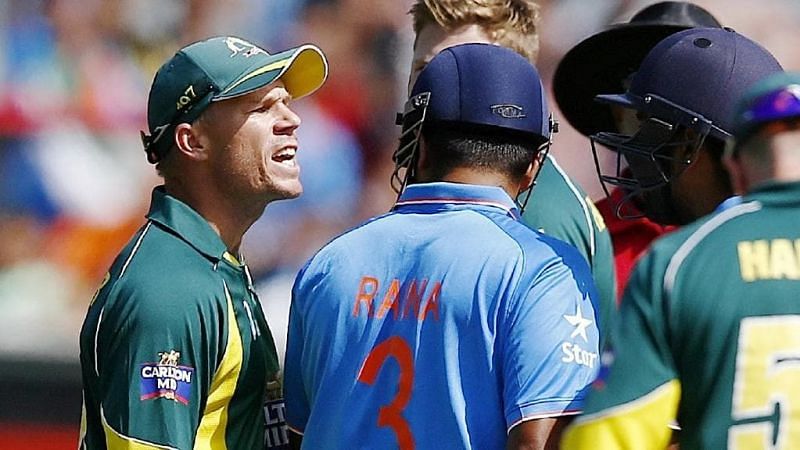
Well, if his constituents are interested in an angry man vigorously defending their rights, they know who to vote for, but let’s be honest, Davey, don’t kid yourself. But then again, Trump.